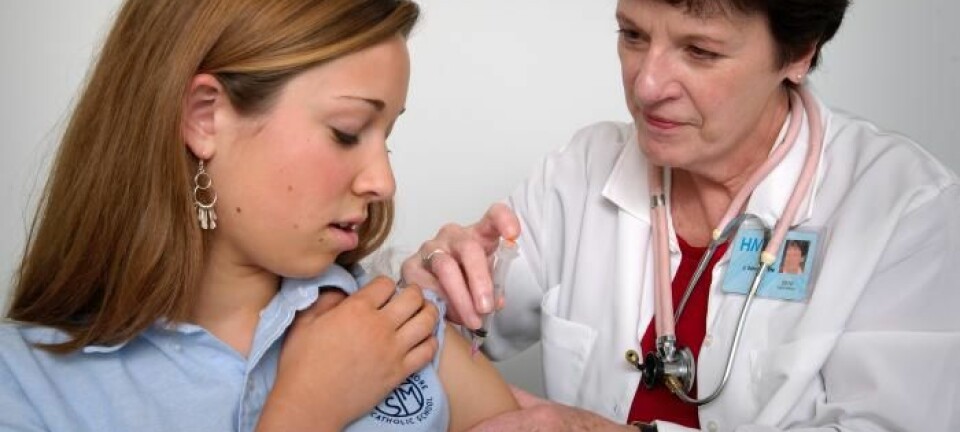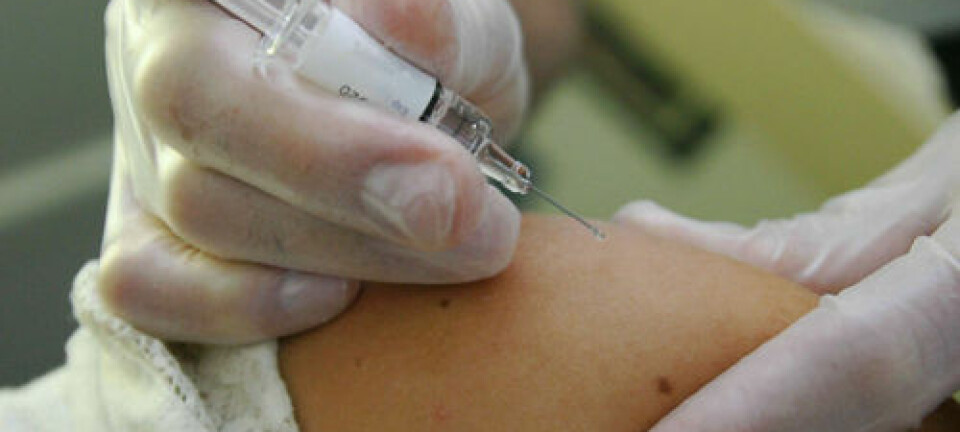
HPV vaccine effective for Danish women
The HPV vaccine against cervical cancer was introduced in Denmark in 2006. New research shows that it is already working as it should and has significantly reduced the risk of cervical precursor lesions.
The vaccine against the dreaded human papillomavirus (HPV), which can trigger the development of cervical cancer, has proved effective in Denmark.
So concludes a new study of the incidence of cervical precursor lesions in Danish girls and women who have been vaccinated with the HPV vaccine Gardasil.
The study is the first of its kind where scientists study the nationwide difference in the incidence of cervical precursor lesions among vaccinated and non-vaccinated women.
The results show that for women born between 1989 and 1999, there have been significantly fewer cases of cervical precursor lesions for vaccinated women than for their non-vaccinated counterparts.
The special thing about Denmark in this context is that we were very quick to implement the HPV vaccine nationwide. This is why we have managed to carry out such a comprehensive study of the effect of the HPV vaccine so soon.
Professor Susanne Krüger Kjær, MD, of the Danish Cancer Society and the Copenhagen University Hospital, explains:
“Our study reveals a reduction of between 40 and 80 percent of cervical precursor lesions in vaccinated women compared to non-vaccinated women. We assume that this figure also applies to the risk of subsequent development of the disease.”
The study is published in the Journal of the National Cancer Institute.
Denmark has unique health registers
Using a cohort study design, the researchers identified all girls and women born in Denmark in the period 1989-1999 and obtained information on individual HPV vaccination status in the period 2006-2012 from nationwide registries.
The study is particularly interesting as it is only a few years since the HPV vaccine was implemented in the Danish vaccination programme, and seeing such a marked effect after only six or seven years is remarkable:
“The special thing about Denmark in this context is that we were very quick to implement the HPV vaccine nationwide. This is why we have managed to carry out such a comprehensive study of the effect of the HPV vaccine so soon,” says Kjær.
Fewer cervical cancer cases in the future
Kjær expects that the vaccine will have an impact on the number of cervical cancer cases in the future.
Although some cervical precursor lesions never develop into cervical cancer, the significant reduction in the number of women with cervical precursor lesions will also lead to a reduction in the number of actual cancer cases in the future, she says:
“We cannot say anything with certainty yet, but I do expect that the group of women born between 1989 and 1999 who received the HPV vaccine will experience far fewer cases of cervical cancer when they reach an age at which the disease typically develops, which is in ten to 20 years’ time.”
-------------------
Read the Danish version of this article at videnskab.dk







